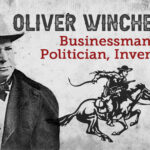
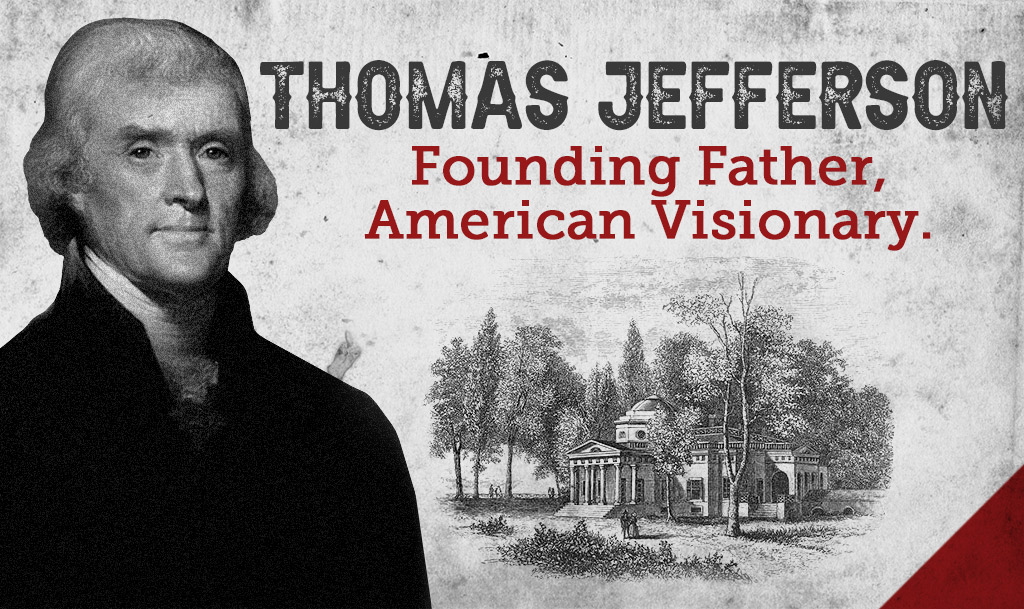
Arguably, Thomas Jefferson deserves to be at the top of the list of the country’s most influential Founding Fathers. The statesman, philosopher, diplomat, inventor, architect, and author left an enduring mark on American democracy through his extensive contributions.
Jefferson’s life incorporated his prominent role in the American Revolution and his visionary presidency as the third U.S. President, while showcasing both intellectual depth and multiple contradictions that continue to shape American history.
“I have sworn upon the altar of God eternal hostility against every form of tyranny over the mind of man.”
— Thomas Jefferson, 1800
Early Life and Education
Thomas Jefferson was born on April 13, 1743, in Shadwell, Virginia, into a wealthy plantation family. He was the third of ten children born to Peter Jefferson, a surveyor and planter, and Jane Randolph Jefferson, a member of one of Virginia’s most prominent families.
In his early years, Jefferson showed a keen intellect and love for learning. He learned Latin, Greek, and French and later attended the College of William and Mary in Williamsburg. It was there that Enlightenment ideals influenced him as he studied law under the prominent jurist George Wythe. Jefferson’s education laid the foundation for the principles that guided his political career: liberty, republicanism, and the separation of church and state.
Thomas Jefferson and the Revolutionary War
The growing colonial opposition against British rule led Jefferson to become an open opponent of British policies. Despite never taking up arms, he became a leading American supporter of the Revolutionary War through his writing efforts.
In 1774, Jefferson released A Summary View of the Rights of British America. This presented the colonies’ right to govern themselves and reached many revolutionary supporters. According to Jefferson, the colonies maintained their connection to Britain through voluntary agreements. They could revoke these at any time, a concept revolutionary for its time.
During the war, Jefferson dedicated his efforts to political and ideological activities. He served in the Virginia House of Burgesses while implementing two key reforms, which included religious freedom and the elimination of primogeniture. Through his work, Jefferson developed revolutionary ideas that spread from Virginia to other colonies throughout the United States.
Authoring the Declaration of Independence
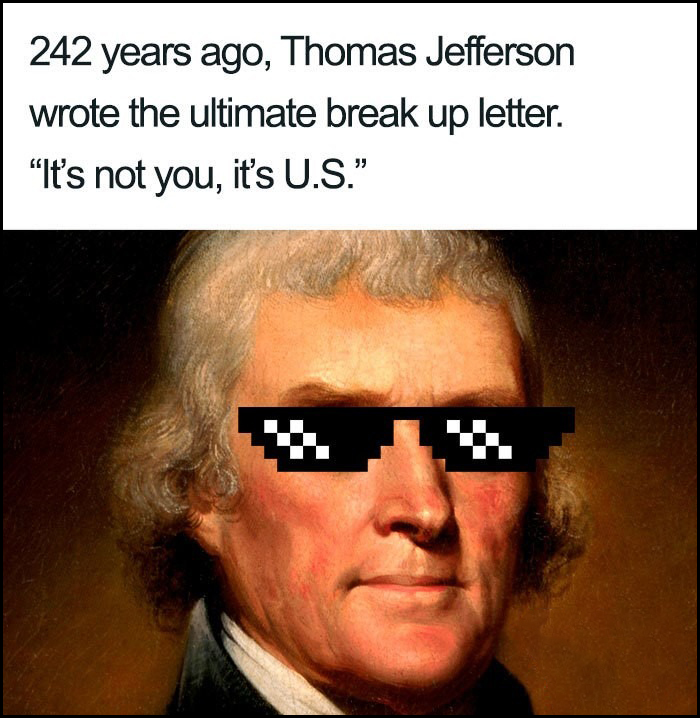
Jefferson wrote the initial draft of the Declaration of Independence in 1776.
When Jefferson joined a five-member committee in 1776 to draft a Declaration of Independence from Britain, it became his most enduring contribution to American history. John Adams, Benjamin Franklin, Roger Sherman, Robert Livingston, and Jefferson, who was the primary author, were all members of the committee.
The Declaration of Independence was ratified on July 4, 1776, and contained the colonists’ grievances against King George III, as well as the principles of the Enlightenment. Jefferson famously stated, “We hold these truths to be self-evident, that all men are created equal, that they are endowed by their Creator with certain unalienable Rights.”
Jefferson’s voice dominates the document even though others edited it. His statements laid the theoretical groundwork for American democracy and declared America’s independence from Britain.
Thomas Jefferson’s Service in the Continental Congress and State Government
Following the signing of the Declaration, Jefferson carried on with his political career. He pushed for changes in land ownership, education, and religion while serving in the Virginia House of Delegates from 1776 to 1779.
During a challenging period of the war, he was elected Governor of Virginia in 1779. Jefferson’s leadership came under fire after he left Monticello before an approaching British cavalry raid, and British forces invaded the state. Even though he was later found not guilty, the incident briefly tarnished his reputation.
In 1783, Jefferson rejoined the Continental Congress, where he promoted public education and westward migration. He wrote the 1784 Ordinance, which served as the foundation for the Northwest Ordinance and, subsequently, the idea of territories becoming states.
Thomas Jefferson’s Diplomatic Service in France
Jefferson succeeded Benjamin Franklin as America’s top diplomat in Paris in 1784 when he was named U.S. minister to France. He lived in France until 1789, during which time he observed the early phases of the French Revolution.
Jefferson improved U.S.-French ties while in Europe and learned more about European political and economic thought. Although he respected the French Enlightenment, he was concerned about the increasing violence of the Revolution.
Jefferson’s views on republicanism and individual liberty were strengthened by his time spent in France. He came back to the United States as the Constitution’s new federal government took shape.
Thomas Jefferson as Secretary of State and the Birth of Political Factions
President George Washington named Jefferson the first Secretary of State in 1790. Political differences started to solidify during this time, particularly between Jefferson and Treasury Secretary Alexander Hamilton.
Jefferson supported a strong state government, an economy centered on agriculture, and a literal reading of the Constitution. Hamilton favored a national banking system and a powerful central government. The first American political parties, the Federalists (led by Hamilton) and Jeffersonian Republicans (later Democratic-Republicans), were formed as a result of these ideological disagreements.
Particularly because of the neutrality declaration during the French Revolutionary Wars and the assumption of state debts, Jefferson became increasingly uneasy in Washington’s cabinet. In 1793, he resigned and withdrew to Monticello to concentrate on his personal and agricultural affairs.
Vice Presidency under John Adams (1797–1801)
Despite political tensions, Jefferson made a comeback to national politics in 1796 and ran for president. Despite losing to John Adams, he was chosen as the runner-up for vice president under the electoral laws in effect at the time.
The Kentucky Resolutions (1798), one of Jefferson’s many writings during his time as vice president, argued that states had the power to overturn unconstitutional federal laws. These were Jefferson’s direct response to the Sedition and Alien Acts, which he saw as an attack on free speech and state sovereignty.
Although the vice presidency was largely ceremonial, Jefferson’s ideological opposition to Adams’s policies contributed to the Republican Party’s rise to prominence in politics.
Thomas Jefferson’s Presidency (1801–1809)
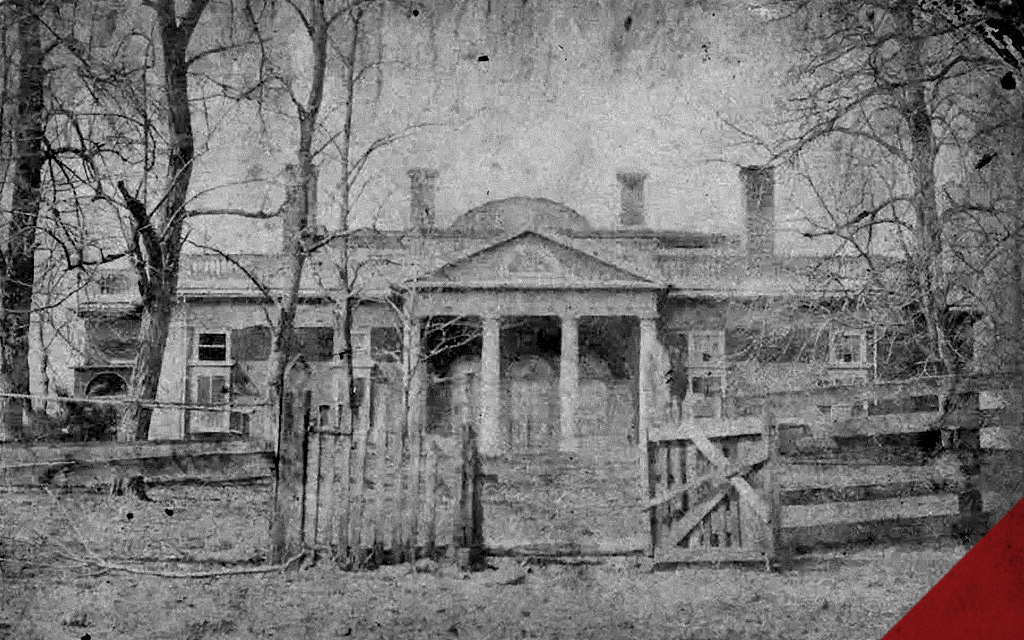
A historic photo of Thomas Jefferson’s Monticello home in Albemarle County, Virginia, taken in the late 1800s.
Election of 1800: The Peaceful Revolution
One of the most consequential elections in American history was the Revolution of 1800. After 36 ballots, the House of Representatives decided in Jefferson’s favor, partly because of Hamilton’s grudging support, after Jefferson and Aaron Burr tied in the Electoral College.
A historic event, Jefferson’s peaceful assumption of control showed that power could be passed in the U.S. without bloodshed or unrest, which was uncommon at the time.
Key Achievements
- Louisiana Purchase (1803): By paying $15 million to France for the Louisiana Territory, Jefferson doubled the size of the United States. He believed that this was crucial for the future of the country, even though it went against his rigid interpretation of the Constitution.
- Lewis and Clark Expedition (1804–1806): Meriwether Lewis and William Clark were tasked by President Jefferson to explore the newly acquired western territories and discover a path to the Pacific Ocean. The expedition returned essential geographic, botanical, and cultural knowledge.
- Marbury v. Madison (1803): Although it wasn’t something Jefferson directly initiated, this Supreme Court case, brought about during his presidency, established judicial review, thereby bolstering the judiciary’s authority and influencing American constitutional law.
- Reduction of Federal Government: In keeping with his ideals, Jefferson lowered military expenditures and eliminated internal taxes.
Thomas Jefferson’s Challenges and Controversies
The Embargo Act of 1807
Jefferson signed the Embargo Act, which banned all American exports, in an effort to persuade Britain and France to uphold American neutrality during the Napoleonic Wars. The U.S. economy was severely damaged by the act, particularly in port cities.
Later Years and Legacy
After leaving office in 1809, Jefferson retired to Monticello. He continued to correspond with prominent figures, including a famous reconciliation with John Adams. The two former rivals exchanged hundreds of letters until their deaths. Remarkably, both men died on July 4, 1826, the 50th anniversary of the Declaration of Independence.
Jefferson spent his final years founding the University of Virginia, which he considered one of his most significant accomplishments. He designed the campus, chose the faculty, and set the curriculum—free from religious doctrine, an Enlightenment ideal.
On his tombstone, Thomas Jefferson listed three achievements:
- Author of the Declaration of Independence
- Author of the Virginia Statute for Religious Freedom
- Founder of the University of Virginia
Notably, he omitted the presidency, reflecting his core values of liberty, religious freedom, and education.
A Man of His Time, A Legacy for the Ages
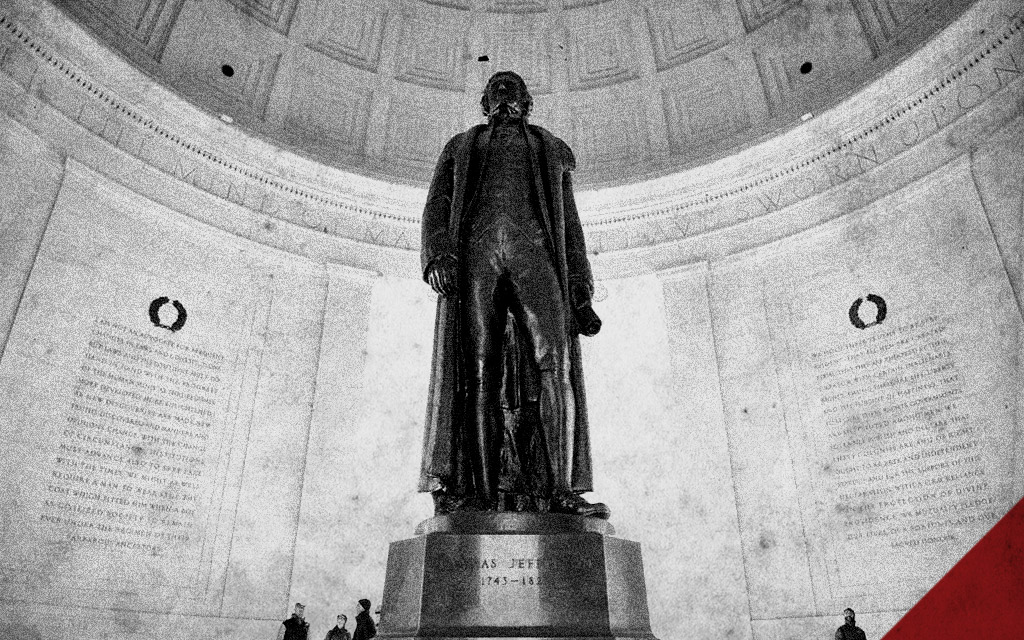
Jefferson’s monument is located in West Potomac Park in Washington, D.C., on the banks of the Potomac River.
Thomas Jefferson was a multifaceted individual. He was a staunch constitutionalist who increased executive power through the Louisiana Purchase. A visionary who firmly believed in the promise of the American experiment, he was also a champion of liberty who owned slaves.
His contributions influenced the political, intellectual, and territorial development of the United States. Even though they are frequently applied imperfectly, Jefferson’s principles still impact discussions about democracy, federal authority, and human rights.
In the grand scheme of American history, Jefferson remains a symbol of the founding spirit and a man of his time.


